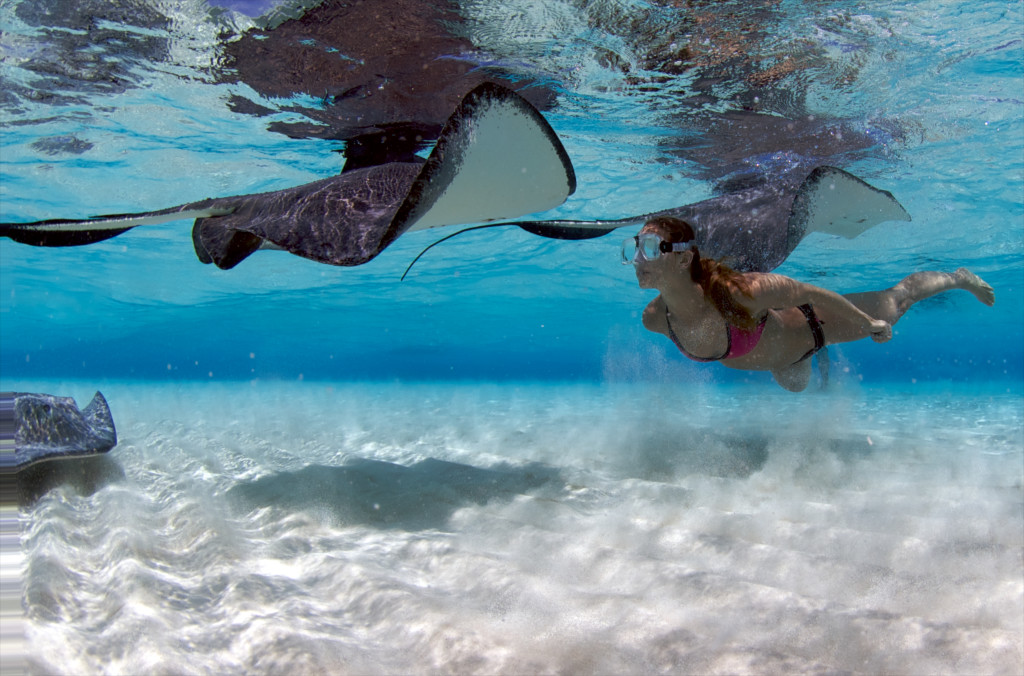Government moves to expand protection; ongoing census provides up-close look; dive industry voices full support
For more than 30 years, divers and snorkelers to Grand Cayman have enjoyed a unique first-hand encounter with dozens of friendly stingrays that gather at two sites in the clear waters of the North Sound − Stingray City and the sandbar. This creature experience is on the bucket lists of divers across the world. The celebrity rays have been featured on the front page of the Wall Street Journal, the cover of National Geographic Magazine, and most dive publications. NBC’s Al Roker dove with the rays in 1989 and put them on network TV. The exposure has made Stingray City one of the most popular dive and snorkel sites in the world, and it contributes significantly to the local tourism economy.
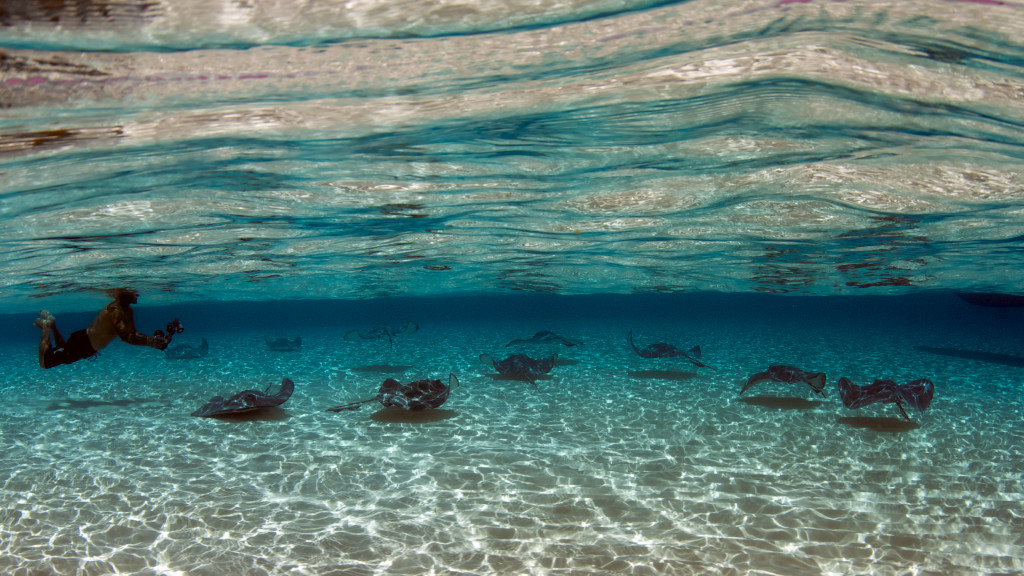
Cayman’s celebrity stingrays are now under the full legal protection of the Cayman Islands Government, which amended its New Conservation Law to extend protection to Southern Stingrays in Cayman Waters. Before the amendment, the law only protected them in the Sandbar or Stingray City, designated as Wildlife Interaction Zones, and in marine parks or designated environmental zones. The amendment to the Conservation Law also extends protection to Eagle Rays and Manta Rays in local waters.
Members of the Cayman Islands Tourism Association have always supported efforts to protect the Southern Stingray and the move by the government is welcomed. Everyone understands how vital Stingray City is to Cayman’s tourism product.
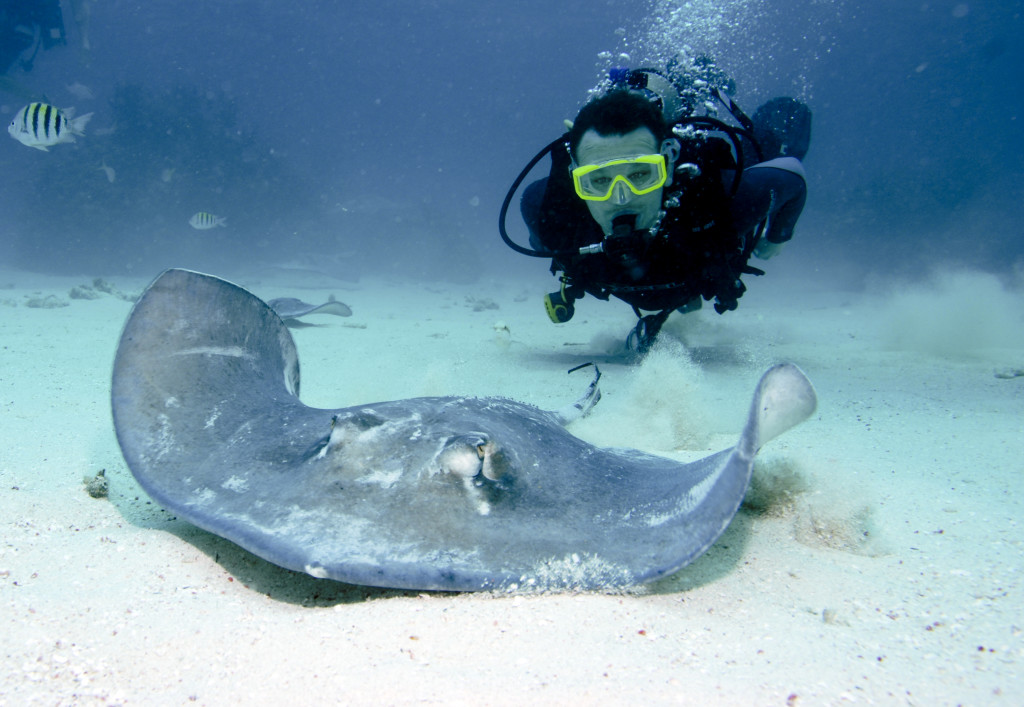
Steve Broadbelt, co-founder of Ocean Frontiers: “Many have tried to copy Stingray City, others have even tried to poach and export our Southern Stingrays, but nothing comes close to the wild aggregations of Stingrays we have in the Cayman Islands. Stingrays are critical to tourism in Cayman as it gives us a competitive edge over other destinations in the region- everybody loves Stingrays.”
The beginnings of Stingray City can be traced to the islands early days when local fishermen cleaned their catch in the shallows of the North Sound, attracting the stingrays, bottom feeders. Then divemasters doing surface intervals between dives on the North Wall noticed the circling rays and began feeding them.
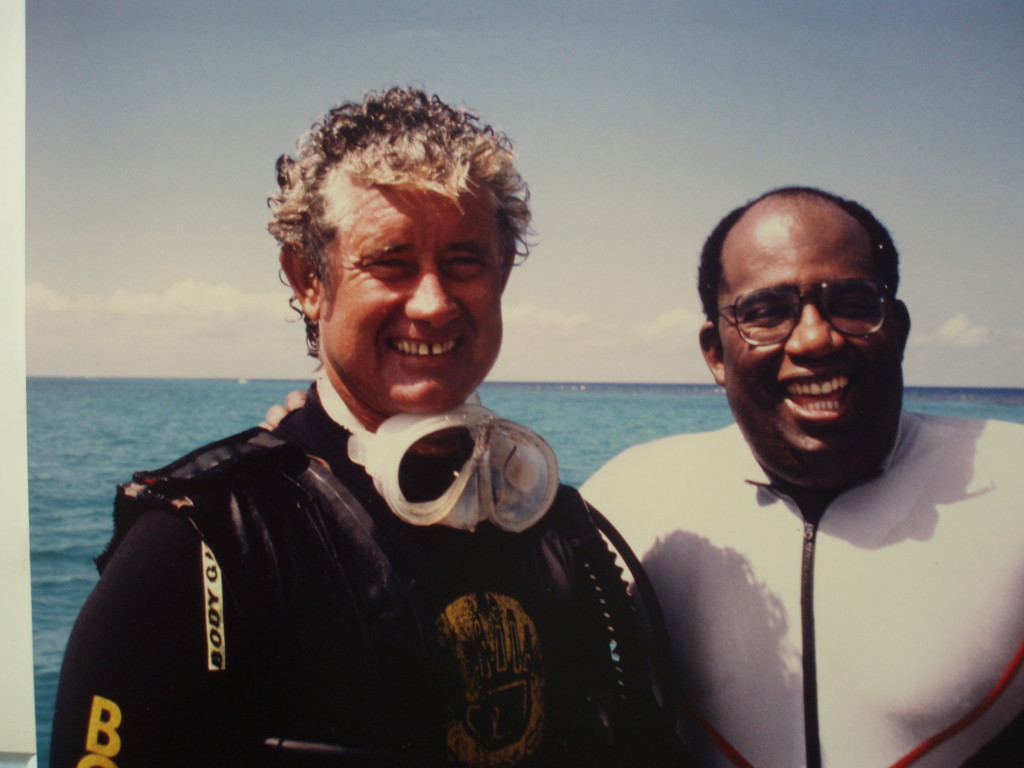
“I can remember they would come to me and snuggle like puppy dogs, they were wonderful!” recalls Kenney, one of those divemasters and a long-time Red Sail Sports staffer. The divemasters helped dispel the bad myths surrounding stingrays and the Stingray City experience took off. This experience with the friendly rays has thrilled thousands and made Stingray City the number one dive and snorkel site in the Cayman Islands.
“It’s a natural aquarium, not man-made. No Stingrays are caught and kept in captivity so it’s authentic and the rays come and go as they so please,” says Nancy Easterbrook, owner of Divetech. “In addition to playing with the gentle Southern Stingrays, green moray eels will visit you, school of blue tangs and snappers and small coral heads reveal their inhabitants if you stop and look closely. In 12 feet of crystal clear water, it’s the ideal photographers dream – no wonder millions have visited the site over the years and has a special place in their dive logs.”
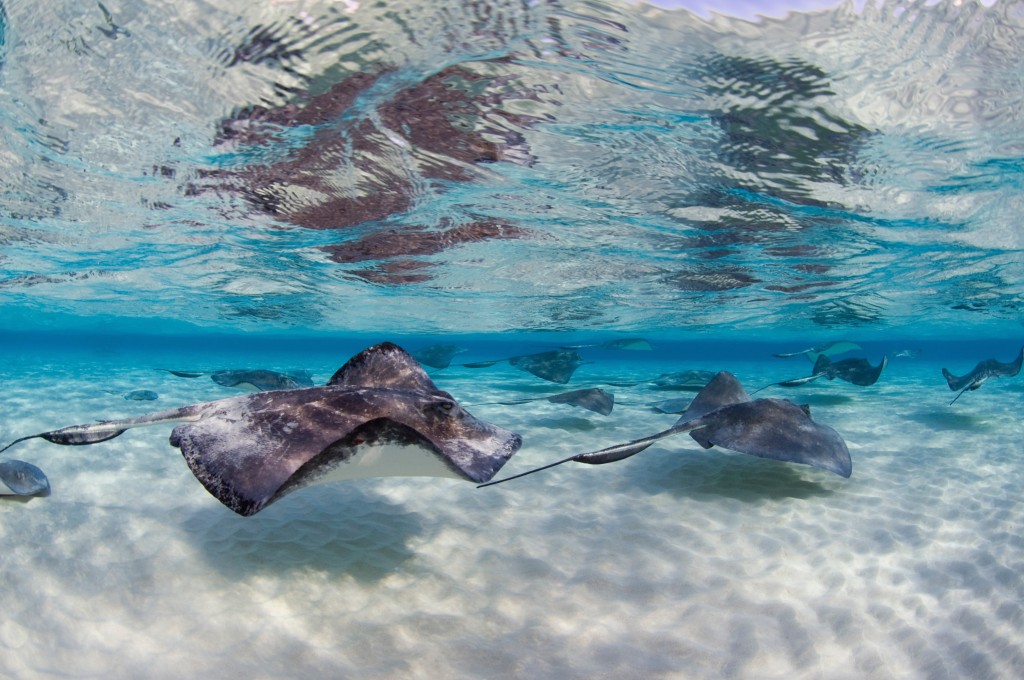
The Cayman Islands Department of Environment introduced guidelines in 2007 to manage traffic at the stingray sites and actual handling of the rays. Dive operators emphasize these rules to visitors before they enter the water.
“Our briefings cover the highlights of the marine conservation laws as applicable to the Wildlife Interaction Zones, including why the regulations make sense, so people understand how to safely enjoy the ‘aquarium’ for both their protection and the Stingrays protection,” says Steve Broadbelt. “In general we tell guests to watch and observe the rays, and not molest or annoy them.”
Red Sail Sports dive boats also include an introduction to “Fluffy” the stuffed stingray during dive briefings. “The stuffed stingray is used to demonstrate the anatomy of the stingrays…where the mouth is, the gills, how they breathe, how they feed, and of course the tail including the barb,” says Dive Operations Manager Clive Webb. “This lets the guests know where they can touch the Stingrays, what they feel like both on top and underneath, and what to pay attention to and be careful of. We also include the contribution by our own Pat Kenney being one of the first to get in with the rays.”
An annual census by conservationist Guy Harvey, with assistance and oversight by the Department of Environment, helps monitor the health of the rays and the dynamics at both sites. According to the latest count 90 stingrays frequent both Stingray City and the Sandbar. Most are female and many of them are pregnant. This year 48 new stingrays have been tagged in the census.
Jessica Harvey, Research Officer, Cayman Islands Department of Environment: “With each ray having a PIT tag, a microchip under the skin, we can determine exactly who we see on a given day, and just as importantly, who we haven’t seen. One female in particular we hadn’t seen since before 2012!”
“Even with the best wall dives, vibrant coral reefs and massive shipwrecks in the Cayman Islands, when a diver sees an image of a Stingray playing with a diver or snorkeler, that photo needs no caption of where it was taken,” says Steve Broadbelt. “Even today, whether it’s your first time or 100th time, the rays never lose their magic and shine a memory that only those who know can fully understand.”



